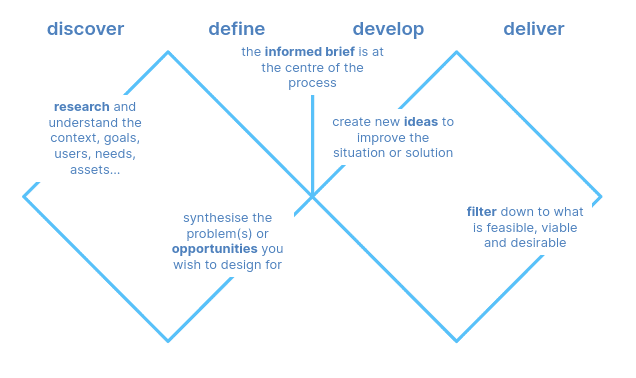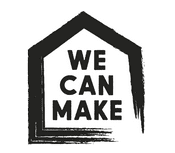Our chief executive, Tom Chance, writes with Owen Jarvis from the UK Cohousing Network about our exciting new programme to help the next generation of enablers develop products and services to grow the CLT sector at significant scale.
The Community Land Trust Network and UK Cohousing Network have launched the “CLH Growth Lab” as a new approach to fulfil the potential of the Community Led Housing.
Research we published in 2021 suggested that community groups were trying to develop as many as 23,000 homes. There is growing awareness and interest amongst the public. But with the premature closure of the Community Housing Fund that growth appears to have hit a ceiling. We do not seem to be breaking through to significant scale.
We have been at the heart of the work to achieve that growth – as networks of community organisations, as lobbyists for resources, and as the architects of some of the funding programmes to support projects and their professional enablers. But this ‘sector infrastructure’ has also faltered in many places as the funding was pulled early after less than three years.
Starting in 2021, the CLT Network, UK Cohousing Network and the Confederation of Co-operative Housing began a collaborative research exercise reflecting on that activity and asking ourselves: what is the best and most financially sustainable strategy to achieve a step change in the scale of community led housing? This culminated in a residential event in November 2022 bringing together community activists, professional advisers, housing associations, developers, and funders.
The conclusion was that we need more workable, replicable types of projects. Bespoke DIY projects are wonderful, and there is a degree to which community led projects are always unique to their people and place.
However, it is hard to market such a diffuse set of ideas to funders and investors. It also creates a lot of work for industry partners and policymakers to get on board. “Here’s what it looks like and here’s how you partner” is a much easier sell than “here are fifteen different ideas and twenty changes you can make to support them”.
Equally, simply visiting one or two exemplars is not enough. Marmalade Lane, a cohousing in Cambridge clocked up its 500th visitor this year whilst in Leeds, for 10 years, LILAC has hosted annual open days for eager visitors. However, visitors have found simply replicating exemplars in their own location has proven difficult as conditions, people and circumstances vary. We need to understand what is essential and replicable in a scheme and which parts of one-offs. Better still, if someone can help broker the transfer and application of what works from one location to another, the success rates will increase.
The trouble is, while most people agreed on what’s needed, few were sure how to get there. In response, we have created the CLH Growth Lab to find and support talented and driven people within the community led housing sector who want to become the sector’s “entrepreneurs” and create workable products and services that have the potential to be applied in multiple locations creating significant scale.
The idea for the CLH Growth Lab came from discussions over coffee between CLTN and UKCN CEOs Tom Chance and Owen Jarvis who were reflecting on the November event. Having commissioned various research papers over the years on the barriers to growth, and with the difficulty in getting the constantly-changing governments to reopen the Community Housing Fund, Tom was keen to find new approaches. UKCN’s CEO, Owen Jarvis had led various projects applying design thinking and business growth incubators to the social enterprise, charities, and public sector. Both felt that similar methods could be applied to the CLH sector to begin to solve the challenge of scale.
Reviewing the history of community led housing, social enterprise, and innovation in the UK and abroad it is clear that this development of workable ‘products’ and their development at scale doesn’t come spontaneously from many communities working together. It comes when people mine into all that grassroots innovation and then develop business models to develop products at scale.
Often the people doing that work are different to the people who innovate at the edges of the system. We saw this when we visited Barcelona in June, where a partnership of co-operative developers, co-operative financiers and the city council are building out new co-ops and cohousing communities across the city, with the land to be vested in a community land trust. Each project was unique, but the challenges of land, finance and expertise were all solved at a city-wide level with standard approaches taken by a few intermediaries, backed by strong political leadership.
So how do we develop these products, the business models to roll them out, and the policies to grease the wheels?
This is what we are trying to answer with our CLH Growth Lab. We have used techniques and concepts from service design, lean business start-ups and social impact scaling to create a six-month programme.
Teams are taken through the Design Council’s celebrated “double diamond process” to research and test assumptions before defining the core problem statement they want to tackle; then developing a workable product and service to solve the problem, and if all goes well delivering it. Our work stands on the shoulders of giants such as NESTA, Spring Impact, Young Foundation, the service design movement, and a whole range of accelerators and labs. Our challenge is to distil how to best apply methods to a movement driven by community values and localism.

We want to find ‘system entrepreneurs’ and help them to create investable models that they can then roll out at scale.
We’re starting with three teams at very different stages of development.

Middlemarch has a twelve-year track record of developing CLT-housing association partnership projects in rural communities in the south-west and has identified significant scope for growth in rural communities facing similar situations across the country.

Communities CAN has seen the regional track-record in turning empty high-street locations into affordable housing, including CLTs like the Glendale Gateway Trust, and sees potential for a regional roll-out with support from the councils and combined authority.

We Can Make is distilling the core elements of their model and assessing growth strategies with potential partners nationally, building on the huge interest after they launched their playbook.
We hope to take these team closer to developing investable products and taking them to scale.
We also hope to learn a lot about the process, to refine and then roll out the growth programme across the UK, and across Europe.
This pilot is funded by the Laudes Foundation as part of a new European CLT Network – hence the CLT focus, for now. If it works, we hope this growth programme will move onto address other system challenges, find new entrepreneurial teams and see concepts such as community land trusts, cohousing, and co-ops more commonplace.
